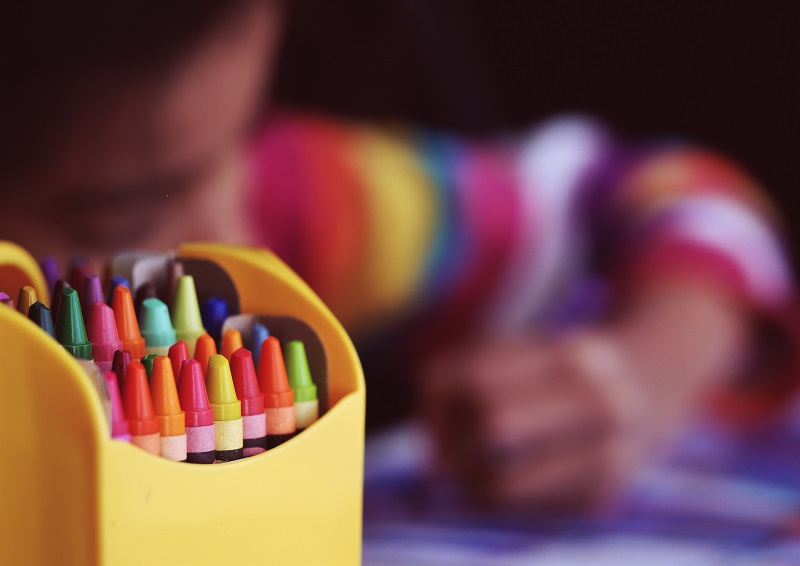It begins with the fact that the tasks of mental education of children are to enrich the child’s knowledge, the development of thought processes, the formation of the ability to find, the ability to tune the child to constant intellectual development and productive intellectual activity. These aspects are components of the content of mental education.
Fundamental rules
The inner meaning is the formation in children of a certain amount of knowledge about objects and phenomena, as well as methods of thinking activity (the ability to observe, analyze, compare, generalize).
For mental education it is important to ensure that the child receives systematic knowledge organized in a certain sequence and completeness, which makes it possible to consider and use them as a single whole. The orientation towards systematization contributes to the actualization of previously acquired knowledge and a deep understanding of those that are formed.
In the process of assimilating systematized knowledge, it is possible to formulate a general strategy for the cognitive activity of the child-from singling out an object to establishing its connection with other objects near which it exists. Subsequently, there is an analysis of its individual properties in the system of functional ties with other objects. Consequently, the necessary element of the content of mental education is the assimilation of systematic knowledge about the surrounding world.

Topics and tasks
Long-term experience of foreign and domestic pedagogy shows that successful process of mental education is realized through the use of such means as – the main themes of the education of preschool children:
1. Acquaintance with objects and phenomena of the surrounding world: In early childhood, the child is introduced to specific objects and phenomena of the nearest environment. Mastering different types of objective actions and language provides the formation of an elementary circle of ideas: about the qualities and properties of objects of everyday life, toys, certain objects of nature, the appointment of individual objects and ways of using them.
In the preschool period, the child learns the basic skills and skills of various activities: gaming, work, study, communication, drawing, modeling, and construction. The expansion of knowledge about objects and phenomena is due to the mastery and development of new activities, the deepening of the content of those that were formed at an early age.
In a word, everything that surrounds the child (people, objective world, nature, phenomena of social life) is the source of mental development. In his daily life, the child extracts new knowledge, acquires new experience.
2. Communication with adults: A special role in mental education is played by adults’ answers to numerous questions of children, which are one of the indicators of their mental development.
3. Different leading activities of children: An important means of education is mental activity. So, already at an early age, mental education takes place in the process of organizing the objective activity of children. This requires the creation of an objective environment that would encourage children to cognitive actions.
Equally important is the development of speech, which opens up new opportunities for the formation of primary representations, helps to establish links between objects, actions and words, which brings children to an elementary generalization.
In mental education, an important role belongs to a game in which the impressions of children about the surrounding reality are displayed, their ideas about objects and phenomena, understanding of events are interpreted creatively. Mental development of the child depends on how much it is included in the productive activities.
Each productive activity provides for the child’s ability to plan, that is, first to represent the image of what is being created and then to embody it in practical activities.
In the process of depicting activities (drawing, molding, making applications), knowledge about objects and phenomena of the surrounding world is expanded and deepened, sensory abilities develop. In general, the child’s pictorial activity unfolds on the basis of perception, comprehension, experience of the perceived, revealing his attitude to him through the image.
On the mental education of children affects and work. It, largely unfolding on a sensory basis, requires the child to have elementary planning skills: to determine the sequence of work, to distribute responsibilities among participants, to agree on a common result. The child must first prepare everything necessary for work, be able to use tools and materials.
4. Education: This type of activity is the most effective means of mental education. Together with the enrichment of children with new knowledge, the level of their development increases in the learning process, all forms of mental activity are improved. In the process of studying, children learn to analyze subjects, master the strategy of cognitive activity.
In the end, it should be noted that only the systematic use of all the topics described above and the tasks of mental and physical education of children ensures the overall harmonious development of the child, contributes to acquiring the necessary knowledge about the world around us and allows us to qualitatively shape his cognitive abilities.



